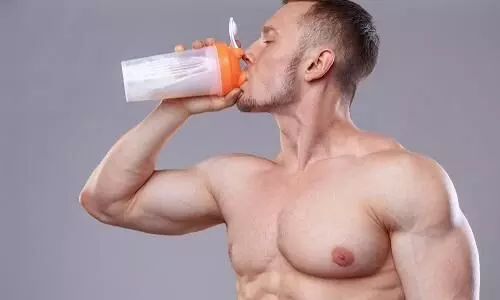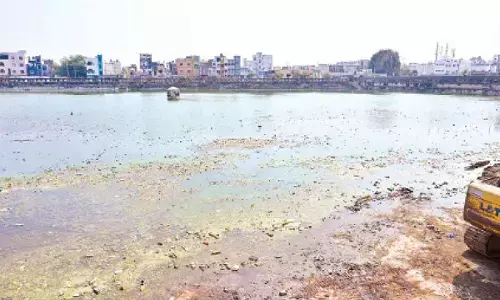The Essential Guide to Post Cycle Therapy: Everything You Need to Know

Are you ready to take your fitness journey to the next level? Whether you're a seasoned athlete or just starting out, post cycle therapy is a crucial step that often gets overlooked. But fear not! In this comprehensive guide, we've got everything you need to know about post cycle therapy (PCT) covered. From its importance in maintaining gains and restoring hormonal balance to the best practices and must-have supplements, get ready to conquer any doubts and ensure your body performs at its peak. So grab your headphones, lace up those sneakers, and let's dive into this essential guide that will revolutionize how you approach PCT!
Introduction to Post Cycle Therapy (PCT)
Post Cycle Therapy is a crucial aspect of any anabolic steroid cycle. It refers to the use of certain drugs and supplements to help restore the body's natural hormone levels after a cycle of anabolic steroids. This process is essential in order to avoid serious side effects and maintain gains made during the cycle.
The duration and type of PCT required will vary depending on factors such as the length of your steroid cycle, the types of steroids used, your individual hormone levels, age, and other variables. Generally speaking, however, most individuals will require at least 4 weeks post-cycle therapy with some cases requiring up to several months.
Let's take a closer look at some common components found in PCT protocols:
1. SERMs (Selective Estrogen Receptor Modulators): These are medications that block estrogen receptors in certain tissues while stimulating them in others. They help control estrogen levels during PCT by preventing its conversion from testosterone through aromatization.
2. Aromatase Inhibitors: These drugs work by inhibiting or blocking aromatase enzyme activity that converts testosterone into estrogen.
3. HCG (Human Chorionic Gonadotropin): This hormone mimics luteinizing hormone (LH) which is responsible for stimulating the testes to produce testosterone. It helps restore natural testosterone production in the body during PCT.
4. Testosterone Boosters: These supplements contain ingredients such as D-aspartic acid and zinc which have been shown to increase natural testosterone levels in the body.
It's important to note that a proper PCT protocol should be tailored to your individual needs and may require adjustments throughout the process. In addition, following a healthy diet, getting enough rest, and engaging in regular exercise can also aid in restoring hormonal balance post-cycle.
Why is Post Cycle Therapy Important?
Post Cycle Therapy (PCT) is a crucial aspect of any steroid cycle, yet it is often overlooked or misunderstood by many individuals. This section will discuss the importance of PCT and why it should not be ignored.
First and foremost, PCT plays a significant role in restoring the body's natural hormone levels after being suppressed during a steroid cycle. When taking exogenous hormones, such as anabolic steroids, the body’s natural production of testosterone decreases. As a result, once the cycle comes to an end, these artificially elevated levels of hormones drop drastically, leading to a state of hormonal imbalance. This can cause various side effects such as mood swings, loss of libido, and even muscle loss.
PCT aims to prevent these adverse effects by stimulating the body's natural production of testosterone through various mechanisms. This includes using compounds such as Selective Estrogen Receptor Modulators (SERMs) and Aromatase Inhibitors (AIs), which help to regulate estrogen levels and increase testosterone production.
Diet and Exercise for Optimal Results during Post Cycle Therapy
Diet and exercise are crucial components of post cycle therapy (PCT) that can greatly impact the outcome of your recovery. During this period, your body is going through significant changes as it tries to restore its natural hormone production. Therefore, it is important to support your body with proper nutrition and physical activity.
First and foremost, a balanced diet is essential for optimal results during PCT. This means consuming a variety of nutrient-dense foods such as lean proteins, complex carbohydrates, healthy fats, and plenty of fruits and vegetables. These foods provide the necessary vitamins, minerals, and antioxidants that play a vital role in regulating your hormones and boosting your immune system.
Protein is particularly important during PCT as it helps to repair muscle damage caused by intense workouts or any potential side effects from anabolic steroid use. Aim for at least 1 gram of protein per pound of body weight per day. Good sources of protein include chicken breast, fish, eggs, Greek yogurt, tofu, and legumes.
Carbohydrates should also be included in your diet but focus on complex carbs like whole grains instead of simple sugars. Complex carbs provide sustained energy throughout the day without causing spikes in insulin levels which can interfere with hormone balance.
Tips for a Successful Post Cycle Therapy
Post Cycle Therapy is an essential part of any steroid cycle, as it helps restore the body’s natural hormone production and minimizes potential side effects. However, many people overlook the importance of proper PCT and end up experiencing more severe issues down the line. To ensure a successful post cycle therapy, here are some tips to keep in mind:
1. Plan ahead: Before starting your steroid cycle, it is crucial to have a plan in place for your post cycle therapy. This includes having all necessary medications on hand and understanding how long you will need to take them. Planning ahead can also help prevent delays or interruptions in your PCT.
2. Follow dosage guidelines: It is essential to follow the recommended dosages for each medication during PCT. Taking too much or too little can lead to unwanted side effects or hinder the effectiveness of the treatment.
3. Maintain healthy lifestyle habits: Your diet and exercise routine play a significant role in supporting your body during post cycle therapy. Eating a balanced diet high in protein and healthy fats can aid in restoring hormone levels, while regular exercise promotes overall well-being.
4. Transportation & storage: During transportation steroids should always be kept at room temperature otherwise cold weather will cause freezing which could damage steroids.
Many steroids must also be stored away from light, heat, moisture, pets and children as they can degrade quickly when exposed to these elements.
5. Get regular blood work: It is essential to monitor your hormonal levels during and after PCT. Getting regular blood work done can help determine if your hormone levels are back to normal or if any adjustments need to be made to your PCT protocol.
6. Be patient: Post cycle therapy takes time, and it is essential to be patient throughout the process. Your body needs time to recover and rebalance its hormone production, so do not expect immediate results. Rushing or cutting short your PCT can lead to long-term issues.
Conclusion:
Post cycle therapy is an essential aspect of any steroid or prohormone cycle. It helps to restore the body’s natural hormonal balance and prevent potential side effects such as gynecomastia, testicular atrophy, and loss of gains. In this guide, we have covered everything you need to know about post cycle therapy.














